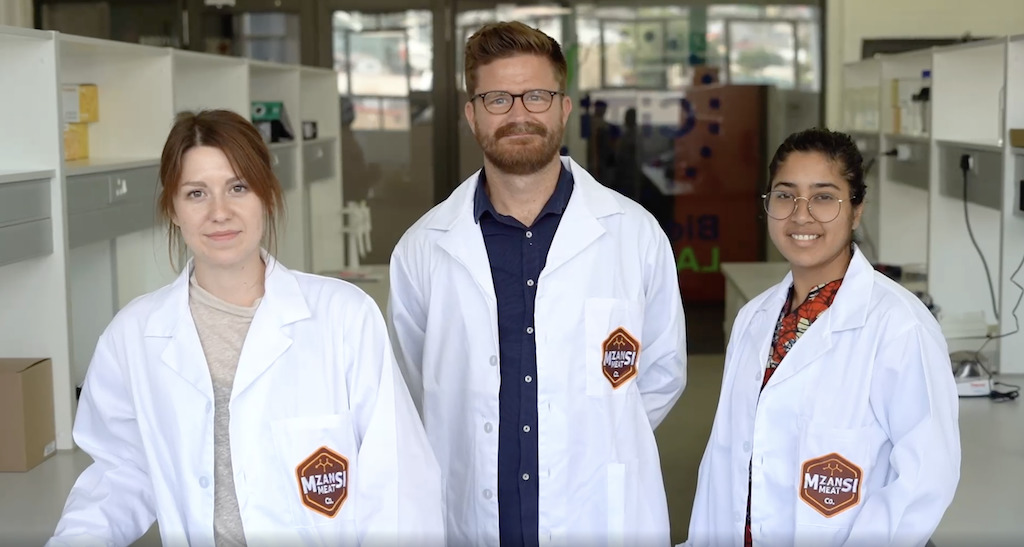4 Mins Read
Two-thirds of South African consumers are “highly interested” in plant-based and cell-based meat, a new consumer acceptance study has revealed. The research, released by NGO Credence Institute, also indicated that the enthusiasm for alternative protein was most prominent among younger generations, in line with global trends.
New research shows that large swathes of the South African population are enthusiastic about alternative protein. Overall, 2 in 3 consumers in the country are “highly interested” in trying novel sources of protein, including plant-based meat and cell-based meat. The study, published in the journal Frontiers in Sustainable Food Systems, was conducted by South Africa-based Credence Institute, an organisation advancing animal welfare, in collaboration with American research firm North Mountain Consulting Group.
More than 1,080 adult participants in South Africa were included in the survey, with the sample nationally representative in terms of age, gender, income, and race.
‘Majority of South Africans are ready to embrace alternative protein’

According to the study, plant-based meat received the highest support among consumers, with over two-thirds (67%) saying they were highly likely to try. 59% said they were highly likely to purchase these products, and among this group, nearly a third (31%) were willing to pay a premium for vegan meat.
While the broad acceptance of plant-based proteins comes as no surprise, given the huge momentum the global vegan industry has gained over recent years, the nascent cell-based meat industry appears to be catching on with consumers too. At the moment, Singapore remains the only country to have approved the sale of meat grown directly from animal cells, though regulatory developments are picking up pace in Israel, the US, and Qatar.
The study found that 60% of South Africans were highly likely to try cell-based meat, and 53% said they would be willing to purchase the novel protein. Again, a significant portion of shoppers were open to paying more for cultivated meat, with around 31% falling into this category.
Commenting on the results, Credence Institute co-founder Ludwig Raal said it was clear that the “majority of South Africans appear ready to embrace these products” and added that the broad acceptance “fills me with hope”.
“Switching to alternative proteins like plant-based and cultivated meat may be one of our best available strategies for improving the environment, public health, and the lives of animals,” Raal continued.

Younger generations driving alt-protein demand
The research also indicated that the most enthusiastic population was the younger generations of South African consumers, with born-frees—those born in the post-apartheid era—and millennials being the most willing to try and purchase both plant-based and cultivated meat than their elder Gen X counterparts.
Many of the respondents cited health, food security and sustainability as the top motivators for purchasing alternative proteins, with those who were already familiar with novel food technologies such as cellular agriculture being the “best predictor of purchase intention”.
Overall, South African consumers across all demographics estimate that in the future, alternative proteins could make up two-thirds of their total meat intake. In other words, plant-based, cultivated and conventional meat consumption would be split equally.
“On average, consumers envision alternative proteins to make up about two-thirds of their meat consumption once products are widely accessible, and younger generations are especially open to these new technologies,” explained lead author Dr. Keri Szejda.
These findings align with global consumer polls, which indicate the strongest plant-based demand from Gen Zs and millennials, due to their concerns over health, animal welfare in factory farms, and the carbon footprint of meat.

Sustainable protein ecosystem in South Africa
For the researchers of the South Africa-based study, the data on widespread acceptance of alternative protein is a promising sign that the country could become a major leader when it comes to building up the region’s sustainable food system.
“Our findings suggest that both plant-based and cultivated meat products could offer viable market-based pathways toward a more healthy, sustainable, and equitable protein supply in South Africa and other emerging and developing nations,” commented Dr. Szejda.
South Africa boasts the largest number of food techs developing alternative protein solutions in the African continent, though momentum across the region is gaining speed. Startups based in South Africa include cell-based protein players Mzansi Meat and Sea-Stematic, as well as plant-based companies like distributor Infinite Foods and legacy brand Fry’s Family Food Co.
Lead image courtesy of Fry’s Family Food Co.




